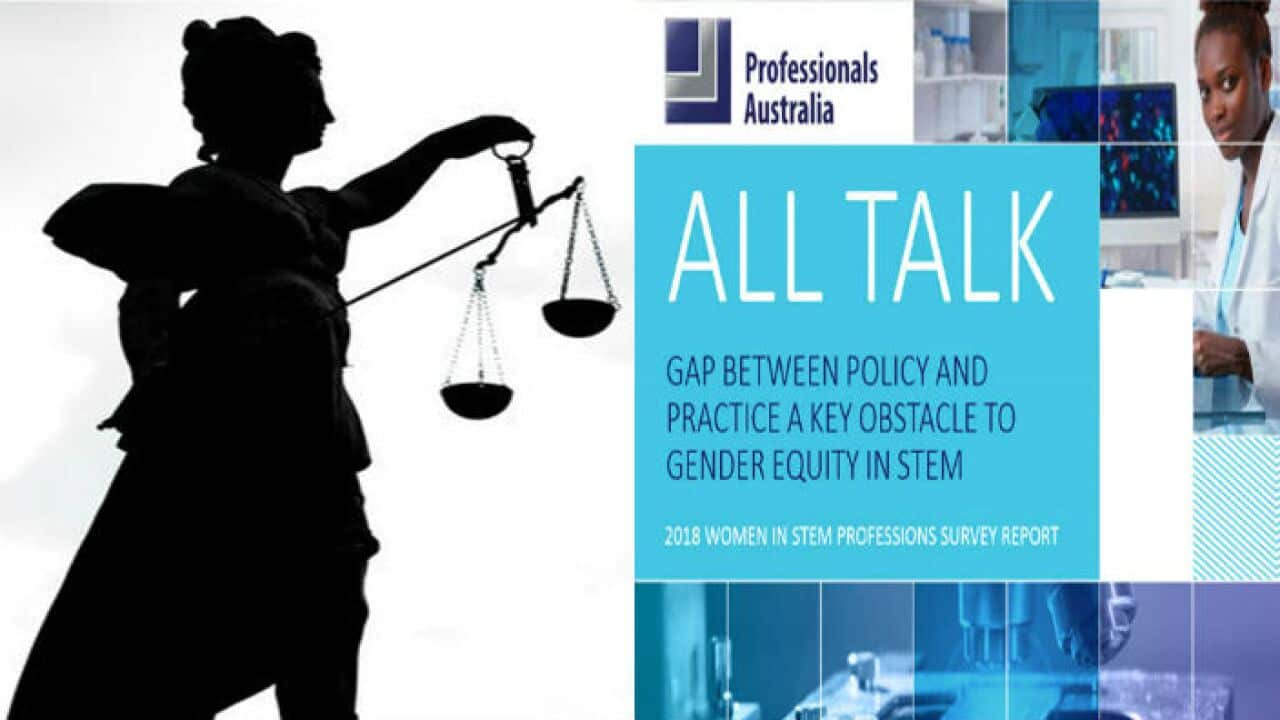According to the Australia's 2018 STEM Professional Survey Report, women are still underrepresented at senior level and earned around $17,500 less than men. There are too much talk, but lack of clear policy which lead to action to deal with gender issues. The Australian Bureau of Statistics (ABS) also claims that women will end up with less superannuation than men when they retire due to they will take more time out of work to care for elders, families, raising families, doing more chores than men and earning less than men even though they may have the same skills and education qualifications.
ABS said that there are 6 main areas such as economic security, education, health, work and family balance, safety and justice, governance, citizenship and Democracy are the big factors that has many indicators to tell if there will be gender equality for women.
The Human Rights Commission also claims that women's weekly average earning are less than their counterparts around $250 weekly.
Currently companies only reports gender pay data to Workplace Gender Equality Agency, but that will change and made known to public if Federal Labor win next federal election.
Deputy Opposition Leader Tanya Pliberseck said that many countries around the world are more transparent and have lower gender pay gap, due to their governments and business do pay close attention to deal with this issue.
Australian Prime Minister Scott Morrison disagrees with Labor's idea stating will divide businesses and people instead of bringing them together.
"I don't want to create tensions and anger and anxiety in the workplace that is not how you achieve these goals," said Mr. Morrison.
There is also claims that it is a tactic Labor uses to name and shame businesses instead of dealing with gender pay gap.
However, Michelle O'Neil, the president of Australian Council of Trade Unions (ACTU) disagreed and asserted that:
"We can't hide these things under the carpet and being silent, people will keep talking about it because it is a problem that affecting them."
Greens senator Marheen Faruqui has also urged Australian government to invest more money into science jobs. She said that it is very disappointing to see lots of women leaving science jobs as they earn less than those study nursing and education and there are less prospect of career advancement in the corporate world. She asserted that Australia should be the world leader in STEM and it should invest for these future jobs.
Chris Walton the CEO of Australia Professional said that "currently we need more people in science, technology, engineer and math more than ever if we want to remain a clever country. Therefore, if we want to retain women's enrolling and working with STEM professions, companies need to change their culture and environments." Workplace Gender Equality Agency Managing Director Kate Lee said that "it is not the disciplines or professionals or lack of education or talent because women are equally graduated with the same qualification as men, however it is because of the structure that that bar them from achieving their fullest potential equality in the workplace."
According to the United Nations Sustainable Development Goals number 5 which is gender equality, it said that:
"Gender equality is not only a fundamental human right, but a necessary foundation for a peaceful, prosperous and sustainable world."
It's recent report showed that Europe has lowest gender pay gap following by sub-Sahara Africa and Latin America and the biggest gap is the Middle East region.
In many part of the world women still do not have the rights to work, rights to receive equal inheritance, rights to own land, they are married as child bride, rights to control their sexuality, in some countries husband can legally prevent their wives from working or driving, women are still subjected to domestic violence, physical and emotional or financial abuse and physical harm like female genital mutilation (FGM). All these issues are contributing to gender disparities leading to gender pay gap and gender inequality.
If you want more information about gender equality please check Workplace Gender Equality Agency's Reference 2018.#
Further readings:
- http://www.professionalsaustralia.org.au/professional-women/wp-content/uploads/sites/48/2018/08/2018-Women-in-STEM-Survey-Report_web.pdf
- http://www.abs.gov.au/ausstats/abs@.nsf/Lookup/by%20Subject/4125.0~Sep%202018~Main%20Features~Selected%20Highlights~2
- https://www.wgea.gov.au/sites/default/files/Stats_at_a_Glance.pdf
- http://www.educationcouncil.edu.au/site/DefaultSite/filesystem/documents/Reports%20and%20publications/Publications/Optimising%20STEM%20Industry-School%20Partnerships%20-%20Final%20Report.pdf
- https://www.wgea.gov.au/sites/default/files/2018-reporting-reference-guide.pdf
- https://www.humanrights.gov.au/education/face-facts/face-facts-gender-equality-2018
- https://www.un.org/sustainabledevelopment/gender-equality/
- http://interactive.unwomen.org/multimedia/infographic/changingworldofwork/en/index.html
Listen to more Hmong news from SBS Radio Hmong program website at www.sbs.com.au/hmong on Thursday 6 pm Australian Eastern Standard Time (AEST) and on Thursday at 11 am AEST.
You can download SBS Radio App to instal in your smartphone from App Store at https://apple.co/2pLgvCX and from Google Play at http://bit.ly/2GuIRv.
Besides, you can download podcasts in Hmong and English from www.sbs.com.au/podcasts/yourlanguage/hmong from which you can subscripe to iTunes store or either download podcasts from https://itunes.apple.com/us/podcast/sbs-hmong/id814724207?mt=2 as well as from https://www.stitcher.com/podcast/sbs-radio/sbs-hmong.
You can also follow #SBSHmong Facebook page at www.facebook.com/sbshmong. Like, subscribe, share, comments and have a chat with SBS Radio Hmong Program and share our stories and news to your friends or share your stories with us so we can present to Hmong communities. Call us on + 61 3 9949 2259 for a chat or message as through Facebook messenger. And if you want to comments directly with us please send your comments to Hmong.program@sbs.com.au or send it to comments@sbs.com.au.





